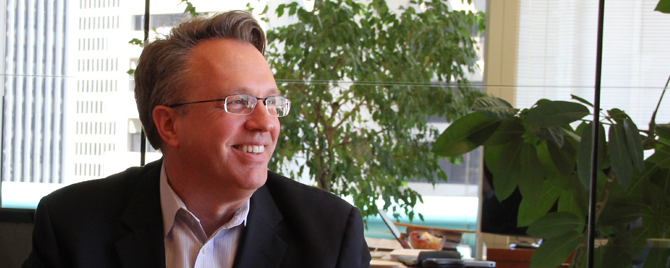San Francisco Fed President and CEO John C. Williams discusses the value of higher education as a foundation for lifelong learning, asserting the arc of one’s life and career choices are influenced by a continuous pursuit of knowledge.
The following SlideShare is part of our 2014 Annual Report, Does College Matter? We hope you take away a better understanding of how college shapes the decision-making process, as well as why seeking knowledge throughout one’s life affects personal and professional success in both small and significant ways.
Lifelong Learning: A Tool for Success
Williams believes one of the biggest benefits of a college education is helping students develop a mindset for success. He explains, “Our formal education prepares us with many mechanisms with which to approach life in the ‘real world.’ But even the lessons that do not appear to have a pragmatic purpose are vital to our success in later life. They teach us to see the world differently and thus view obstacles from several perspectives and approach them from different angles. They’re important because they teach us how to think, not what to memorize. And that is key if we are to push ourselves to continue learning and be open to new ideas.”
The arc of one’s life, and indeed one’s career, is determined by how we continue to learn.
Adapting to a Changing World
While he encourages students, parents, and guardians to calculate returns on a college investment to determine the financial value of a college education, Williams focuses on the intangible benefits of a college education. “All learning is a part of our intellectual and professional success. These disciplines, often considered the ‘soft’ studies are anything but, and they foster the ability to think strategically, to parse ideas, and to question embedded hierarchies that make the mind agile enough to not only adapt to technological advances, but also to embrace new thinking.”
Read the full essay and other insights on the value of college in our 2014 Annual Report.
The views expressed here do not necessarily reflect the views of the management of the Federal Reserve Bank of San Francisco or of the Board of Governors of the Federal Reserve System.

